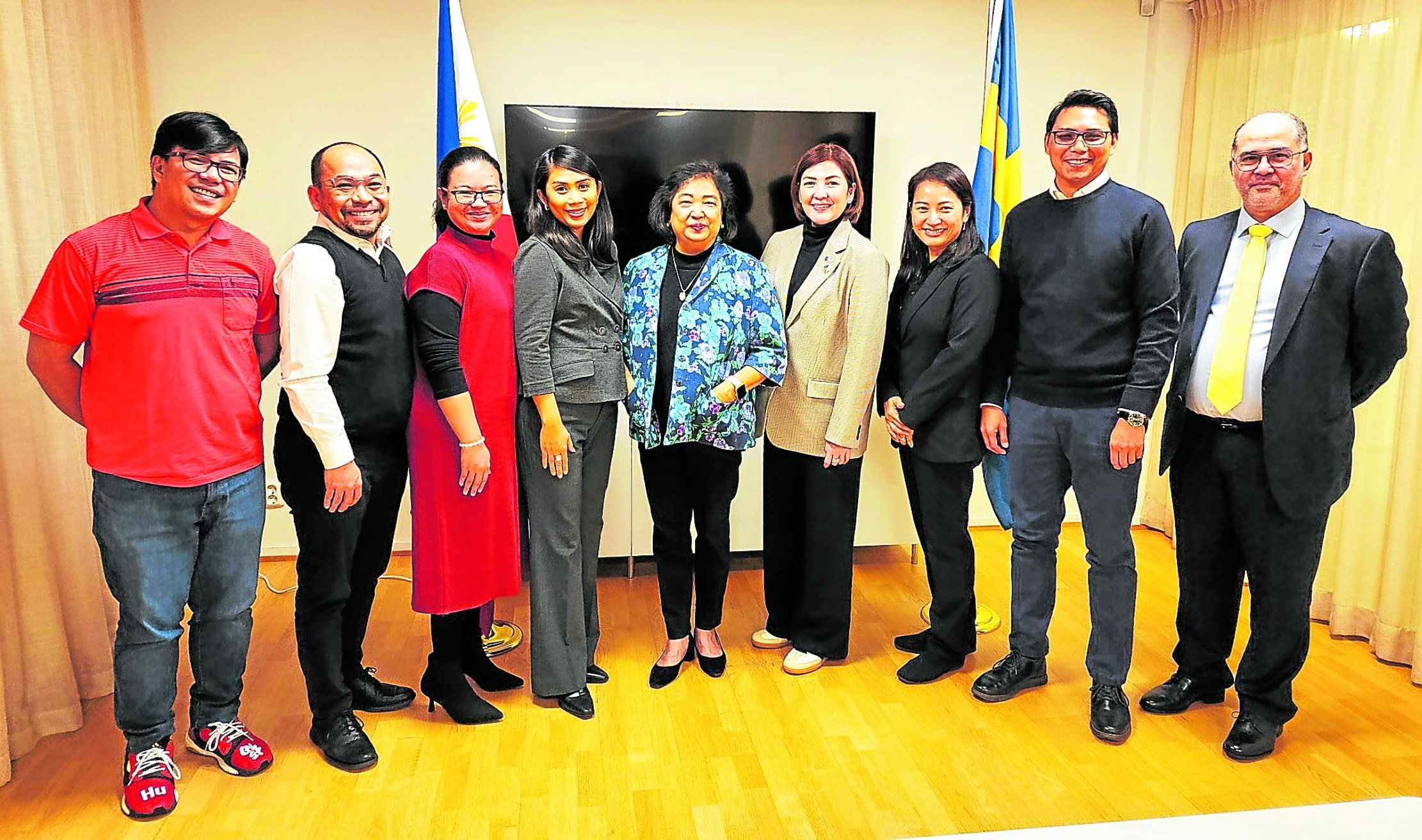Filipino execs gear up for sustainability push after Swedish program

Six Filipino executives from the private sector, part of the inaugural cohort of the Swedish Institute’s leadership program on sustainability, pay a courtesy visit on the Philippine Ambassador to Sweden Maria Lumen B. Isleta (center) at the Philippine Embassy in Stockholm. —CONTRIBUTED PHOTO
With the Swedish Institute’s Global Executive Programme (GEP) on Sustainability nearing its completion in November 2024, the six-month journey of six Filipino senior executives marks an important moment.
The program, which began in May, has immersed these leaders in the latest corporate sustainability practices, combining online sessions with a one-week intensive module in Sweden.
As this activity wraps up, the potential impact of the knowledge gained could be immense for the Philippines. The world is grappling with environmental and social challenges, and nations like the Philippines stand to benefit from the lessons drawn from this program.
As sustainability shifts from being an optional corporate responsibility to a necessity, programs like the GEP can help ensure that Filipino companies are ready to lead this charge.
Among the six Filipino executives are Ginggay Hontiveros-Malvar, Aboitiz Group’s first vice president, chief reputation and sustainability officer; Maita Villanueva, Aboitiz InfraCapital head for transformation and strategy; and Abby Bonita, SM Prime Holdings assistant vice president for sustainability.
Article continues after this advertisementThe rest of the participants include Stephanie Orlino, PLDT & Smart assistant vice president and head of stakeholder management; Jesse Divinagracia Jr., Prime Asset Ventures corporate planning head; and Silvestre Yraola III, Cebu Pacific Air manager for corporate sustainability.
Article continues after this advertisementThese leaders have spent the past months engaging with global counterparts and Swedish sustainability experts, equipping themselves with insights that will drive real change within their organizations. The knowledge they bring back from Sweden could significantly enhance local efforts to integrate sustainable practices into core business strategies, aligning the Philippines with global environmental, social, and governance standards.
Philippine Ambassador to Sweden Maria Lumen B. Isleta emphasized that such programs allow Filipino executives to learn from global best practices and bring back solutions tailored for the country.
This sharing of knowledge is key to addressing the country’s sustainability challenges. As the program concludes, its impact is expected to ripple through industries.
These executives, representing some of the Philippines’ largest conglomerates, are now better positioned to integrate sustainability at the heart of their corporate strategies. Their participation signals the country’s readiness to embrace a future where businesses are economically resilient and socially and environmentally responsible.